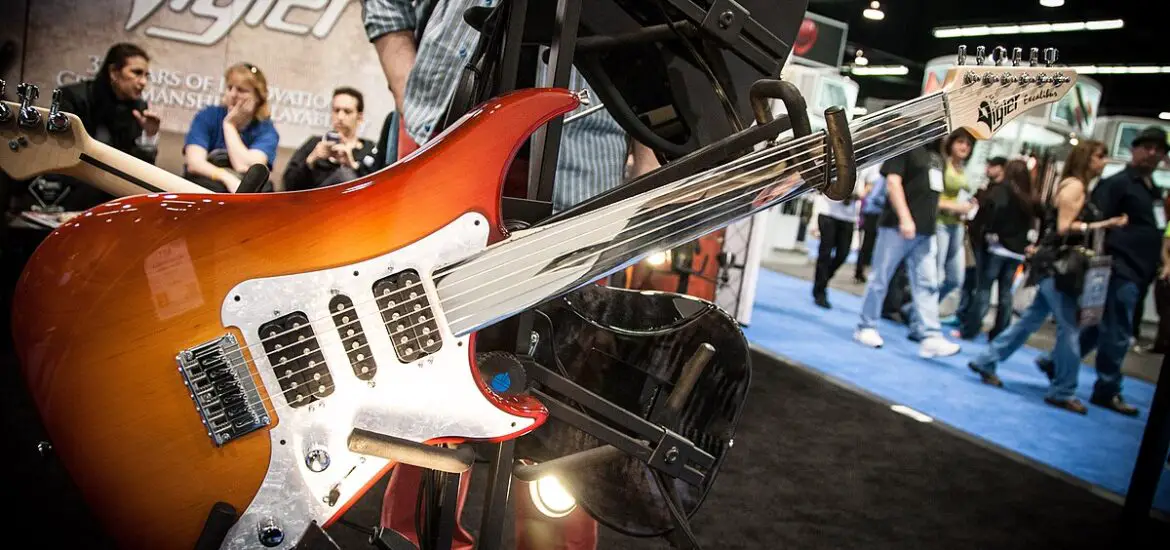When you think about guitars, you most likely picture the traditional fretted versions. But have you considered why fretless guitar options exist and what they offer? This comprehensive guide will take you through everything you need to know, step-by-step.

What is a Fretless Guitar?
A fretless guitar, at its core, is an innovative variation of the standard guitar that you might be more familiar with. Unlike traditional guitars, which have metal frets embedded along the neck to designate specific musical notes, a fretless guitar features a smooth, unmarked fingerboard.
This absence of frets creates an entirely different auditory and tactile landscape for musicians.
The Anatomy of a Fretless Guitar
To appreciate the uniqueness of a fretless guitar, it’s essential to understand its anatomy. The body of the guitar remains largely the same as that of a fretted guitar. The significant alteration occurs on the neck.
Instead of having metal strips that separate the neck into designated areas for each note, the neck of a fretless guitar is a clean, uninterrupted expanse of wood or composite material. This design allows for seamless slides and transitions, presenting a completely different interface for the musician to engage with.
Why Fretless Guitar: The Benefits
The fretless guitar isn’t just a novelty; it offers specific advantages that cater to a range of musical styles and artistic expressions. If you’re wondering why fretless guitars have garnered a following, it’s essential to explore the distinct benefits they offer, which can indeed revolutionize your approach to music.
Greater Tonal Flexibility
One of the most compelling reasons to consider a fretless guitar is the tonal flexibility it provides. Because there are no metal frets to “trap” your notes, you are free to create microtonal variations in your music. Imagine being able to slide from one note to another without the audible “steps” you’d experience on a fretted guitar.
This fluidity opens doors for musical genres that rely heavily on slides, bends, and intricate modulations, such as blues, jazz, and various world music styles.
Improved Note Control
Another remarkable benefit of playing a fretless guitar is the level of note control it affords. In a traditional fretted guitar, you are somewhat limited by the fixed positions of the frets.
Each fret produces a specific note when pressed, and there’s no way to alter that note’s pitch except by bending the string or using other techniques that are often less precise. In contrast, a fretless guitar allows you to achieve the exact pitch you desire, right down to the minutest variation.
This capability can be especially useful for advanced musicians looking to perform intricate compositions that require fine-tuned control over each note’s pitch.
Read more guitar topics here – Guitar Questions: Get the Right Answers to Your Burning Questions
Getting Started With a Fretless Guitar
Transitioning to a fretless guitar is an exciting journey that requires careful planning and adjustments. Whether you’re a novice guitarist eager to venture into the realm of fretless guitars or an experienced player seeking new avenues for musical exploration, the following steps offer a comprehensive guide to help you get started.
Pick the Right Guitar
The first and most crucial step in embracing the world of fretless guitars is selecting an instrument that aligns with your musical goals and personal preferences. Unlike traditional fretted guitars, fretless options come with their unique set of considerations.
Consider the Wood Type
Different types of wood used in the fingerboard can affect the sound and playability of the guitar. For example, maple fingerboards often offer a brighter tonality, while rosewood tends to deliver warmer tones.
Assess the Scale Length
The scale length, or the distance between the bridge and the nut, can influence the tension of the strings and the guitar’s overall playability. Make sure to pick a scale length that you find comfortable.
Brand Matters
Quality brands like Ibanez and Fender offer fretless guitars that are well-crafted and reliable. These instruments typically provide a more consistent tone and a smoother playing experience.
Try Before You Buy
If possible, try out several fretless guitars before making a purchase. The absence of frets makes the playing experience profoundly different, and it’s crucial to feel the guitar in your hands to assess whether it meets your expectations.
Adjust Your Technique
Once you’ve secured your fretless guitar, it’s time to focus on technique. Playing a fretless instrument involves some adjustments to how you approach the fingerboard and produce sound.
Start Simple
Begin with simple scales to understand the fretless layout. Since there are no frets to guide your finger placements, it may take a little while to get used to the new format. Pay attention to the sound you’re producing and adjust your finger positions as needed.
Focus on Intonation
Proper intonation is even more critical on a fretless guitar. Without frets to guide you, you’ll need to rely more on your ear to ensure you’re hitting the right notes. You might find it helpful to play along with a tuner or another instrument for accuracy.
Explore New Techniques
The absence of frets opens up a range of new techniques like smooth slides and more intricate bends. Don’t be afraid to experiment and find new ways to express yourself musically.
Practice, Practice, Practice
Like any other musical endeavor, mastering a fretless guitar will require consistent practice. Consider setting aside specific practice times to focus on scales, arpeggios, and even transcribing some of your favorite fretless guitar solos to immerse yourself in the instrument’s unique sonic possibilities.
Conclusion: Why Fretless Guitar?
Understanding why fretless guitar holds a unique place in the world of music can unlock new creative opportunities for you. From greater tonal flexibility to improved note control, the benefits are significant. So, if you’re looking for a new way to express yourself musically, a fretless guitar may be the answer you’ve been searching for.
